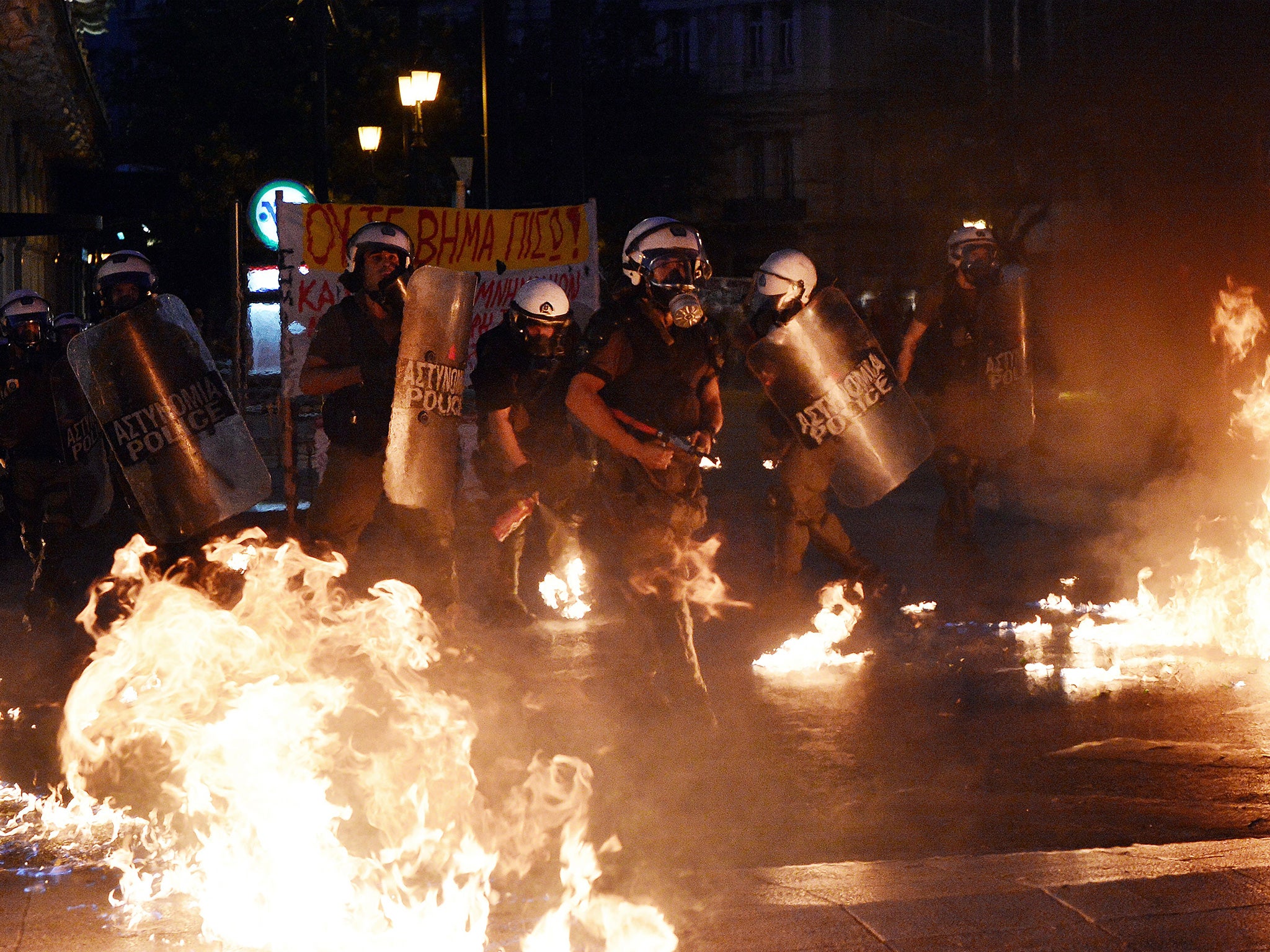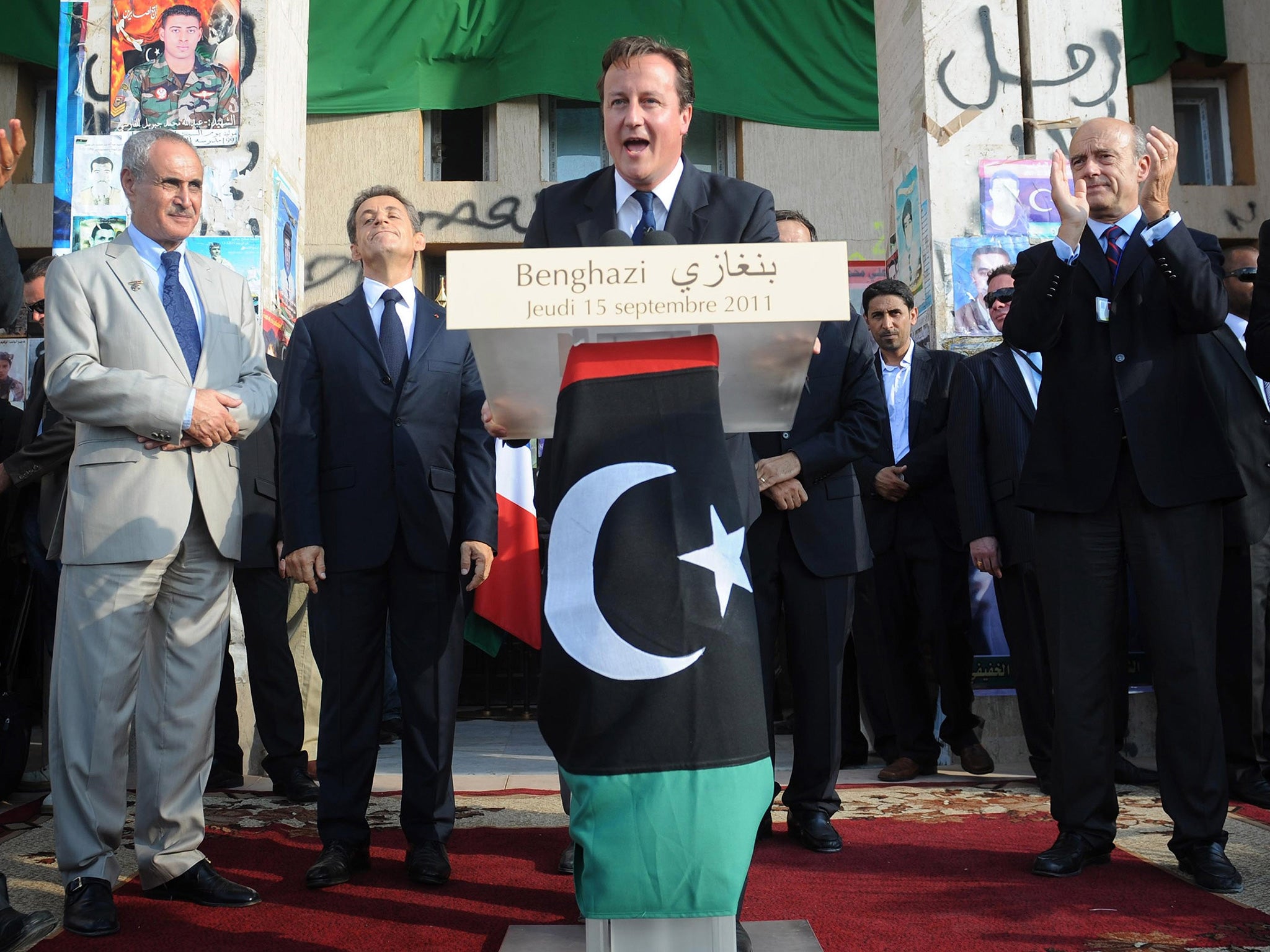The Greek debt crisis threatens 70 years of peace
We forget that wars in Europe were the norm before the EU


Political crises in the Middle East and North Africa since 2011 have either produced extreme violence or caused countries to dissolve into civil war. The territorial settlement that followed the defeat of the Ottomans in 1918 is collapsing, but there is no clear sign of what will replace it, other than conflicts which nobody knows how to end.
Bad though this is, the world has got used to instability in the Middle East and North Africa, almost as if it were a natural phenomenon like earthquakes in Japan or hurricanes in the Caribbean. Seven wars are being fought in Muslim countries between Pakistan and north-east Nigeria. In Europe, on the contrary, 70 years of almost continuous peace since 1945 have convinced its people that this is the natural order of things which will continue despite hiccups in atypical places such as Greece and Ukraine.
But peace in Europe has been very much the exception over the past 1,500 years and there is no God-given guarantee it will continue. The golden age of European integration may have ended as long ago as 2008 when the financial crash began to divide eurozone members into winners and losers. In the same year, the easy dominance of the Western powers established after the collapse of the Soviet Union in 1991 began to look less absolute when Russia invaded Georgia.
The justification for European integration goes back much earlier, to the period after the Second World War. Moves towards European unity always involved more than the creation of an economic mutual benefit society promoting liberal capitalism and democracy. Since its distant beginnings in the Franco-German Coal and Steel Community of 1950, the greatest success of pan-European institutions has been to contain and satisfy an over-mighty Germany through institutions and mechanisms working to its advantage as well as that of other European states.
It is a formula that has worked so well for so long that Europeans, including the Germans, have forgotten that the stabilisation of Europe after two calamitous world wars was never inevitable. The European Union (EU) succeeded because it transmuted German superiority in terms of wealth and power – the great European problem of the first half of the 20th century – into a more benign and acceptable form. Germany could exercise its greater political and military strength, but also operate through a more integrated Europe in which all benefited.
It is this balance of interests that is changing. The Greek crisis ushers in a new and unstable balance of power in Europe. Germany is again exercising power unilaterally by imposing deeply resented terms of capitulation on Greece. Wolfgang Schauble, the German finance minister, even suggested that Greece might temporarily leave the eurozone.
The eurozone has immediately become a less attractive entity for many of its members. If the Germans give total priority to their own interests then so will others. Nationalism will revive as state policy and as a sensible way of interacting with the world. The ability of European leaders to cope effectively with fissured and potentially unstable parts of the continent, such as the Balkans and Ukraine, is reduced. The factors that fuelled the struggles for power in Europe between 1914 and 1945 will begin to seem relevant once again.
Such apocalyptic visions of the future have seldom proved out of place in the Middle East. On the contrary, I have found when writing about the region that, if one’s predictions of disaster turn out to be exaggerated in the short term, they turn out to have been grossly understated when calamity finally strikes. In 2011, I did not expect Iraq, Syria and Libya to have a happy future, but I never foresaw the mass slaughter that ensued or the rise of a power as monstrous as Isis.
Parallels between Europe and the Middle East are never exact, but familiarity with the turmoil in the latter does open one’s mind to the terrifying speed with which states and societies can collapse into division and violence. After 70 years of peace, this is something that European politicians and officials lack experience of dealing with. Speaking to such people – usually intelligent, well-meaning and at some levels well-informed – about the problems of the Middle East, I sense their instincts and background are all against believing that things can be as bad as I describe.
It is this dangerous tunnel vision, which can be worse than stupidity, that has turned the Greek crisis into something closer to a catastrophe. A striking feature of events in Greece over the last seven years is that there has been little violence. But the Greeks now find that their views, peacefully expressed in a general election in January and a referendum in July, are treated with contempt by Germany and its allies. EU leaders ignore the danger that some Greeks, having exhausted democratic means of dissent and with no legal alternative but tame surrender, will decide that the bomb and the gun are the only way to have an impact. Given that foreign tutelage means nothing but misery, it is bound to be resisted in one way or another.

Already, the Greek crisis has tarnished the EU’s image as a community that brings peace and prosperity. It is becoming a weaker and less stabilising force in the Balkans because the lure of EU membership is less attractive than before. Equally, enthusiasm for helping Ukraine in its confrontation with Russia has ebbed fast and is much less forthright.
Germany is not alone in acting as sorcerer’s apprentice and stirring up demons better left in peace. Remember how in 2011, David Cameron and Nicolas Sarkozy made a self-congratulatory visit to Benghazi after taking a leading role in overthrowing Muammar Gaddafi. It is worth looking at video of a beaming Cameron on that triumphal day, evidently without an inkling that, by displacing Gaddafi, Nato had delivered Libyans to warlords and gunmen.
Cameron has never paid any political price for his role in destabilising Libya, despite the fact that the Tunisian who murdered 30 British tourists at Sousse was trained in an Isis camp there. Likewise, few make a connection between Nato’s actions in Libya in 2011 and the flood of migrants from North and West Africa, some formerly holding well-paid jobs on Libyan construction sites, who now risk and often lose their lives sailing for Europe in overcrowded boats and rubber rafts from Libyan beaches.
The real significance of the Greek crisis for Europe is about political power rather than economic relations. The Duke of Wellington said that “a great country can have no such thing as a small war”. The United States learned the truth of this maxim in Iraq after its invasion of 2003, and its influence in the world has never recovered. What the Duke said of wars is equally true of political crises. Whatever the fate of the Greeks, Germany and the eurozone leaders have done themselves lasting political damage in pursuit of a minor economic objective.
Join our commenting forum
Join thought-provoking conversations, follow other Independent readers and see their replies
0Comments